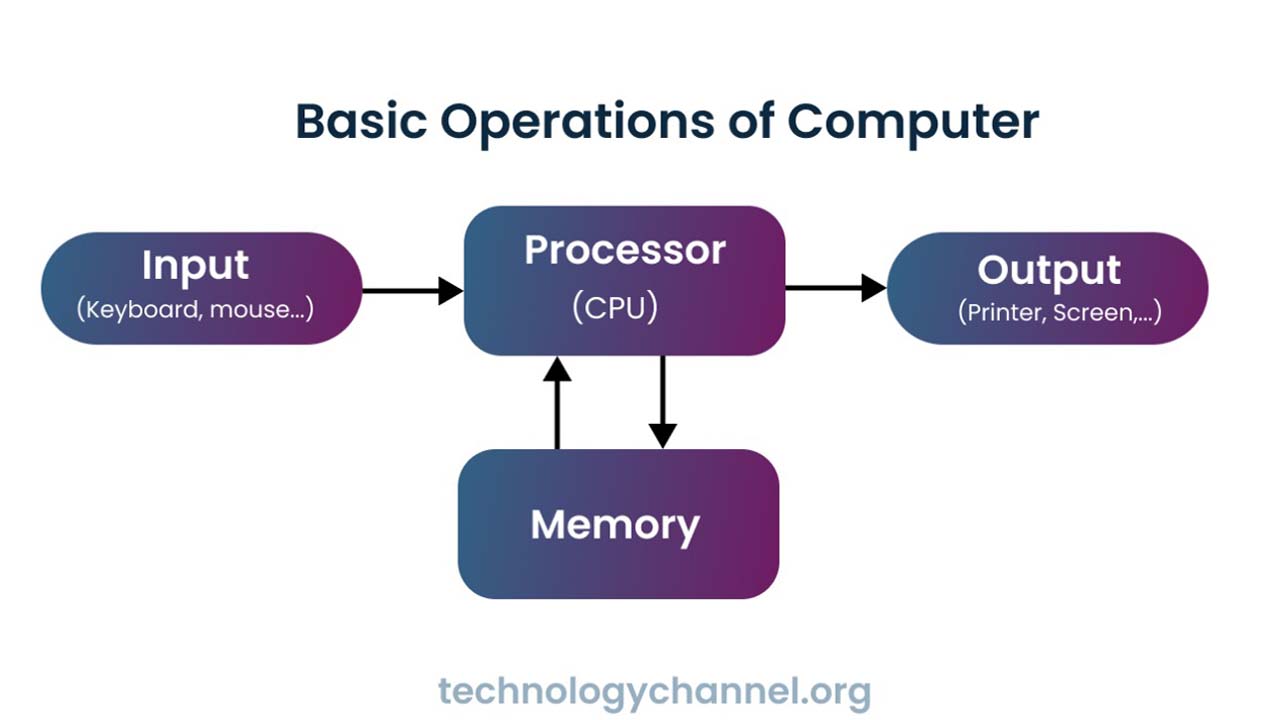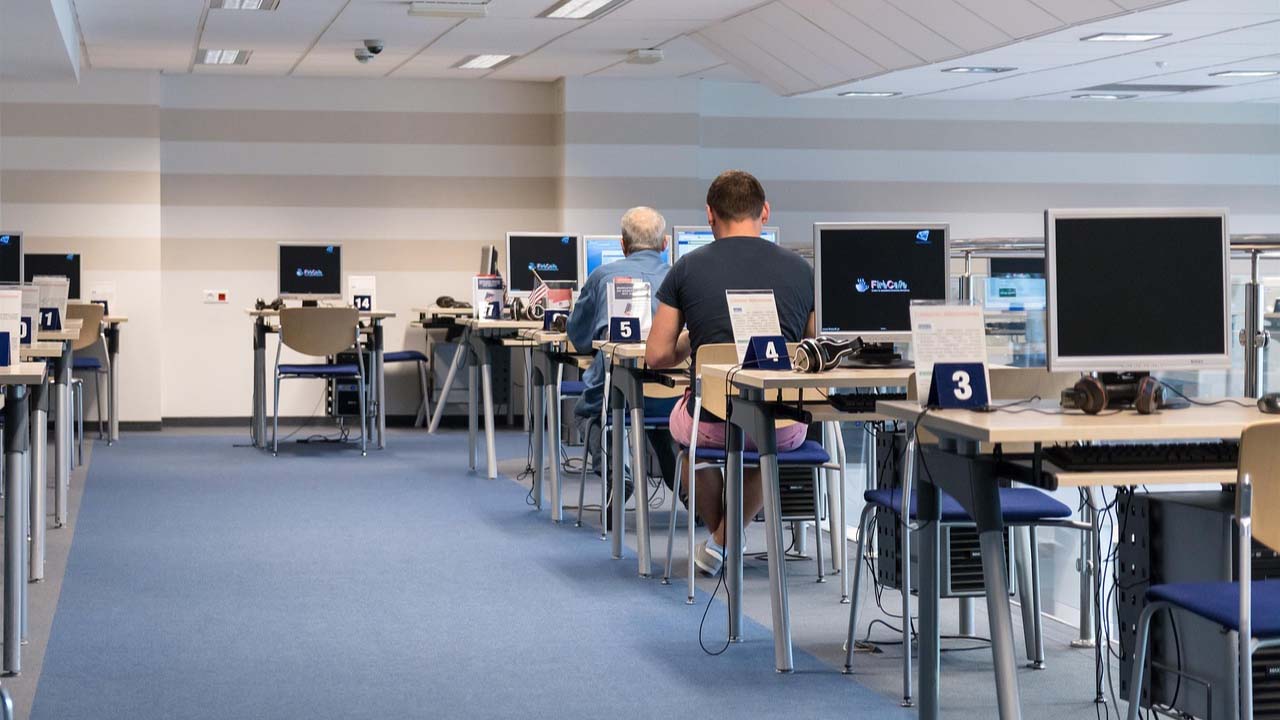Introduction of Computer
Introduction
The word computer is derived from the Latin word “Computare” which means to calculate. A Computer is an electronic device, which takes input from user, process them and provide meaningful result. Charles Babbage is known as father of modern digital computers. He designed ‘Difference Engine’ and ‘Analytical Engine’, which are used to computing mathematical tables.Computer is so popular because It is very accurate and fast, It can do very big calculations in small time.
Basic operations of computer are:

Input: Input is any Information the computer collects from the outside world. Input devices include such as keyboard, pointing devices, scanners, etc.
Process: Processing is the manipulation of the raw data on the basis of the instruction. Central Processing Unit is a device in which computer processes data.
Storage/Memory: Storage is the place where data is held in an electromagnetic or optical form for access by a computer processor. Storage has been divided into:
- Primary Storage: which holds data in memory and it is further divided into two types:
- RAM; which holds data temproraily i.e. till the power is supplied to the computer.
- ROM; which holds data permanently i.e. holds data even when the power is cut off.
- Secondary Storage: which holds data on such as Hard Disk, Magnetic Tapes, Floppy Disk and so on.
Output: Output is the any information which computer sends to the outside world. Examples are Computer monitors, printers and speakers, etc.
Characteristics
The characteristics of a computer are:
Speed:
A modern computer can execute millions of instructions in one second. It can be measured in terms of Millisecond, Microseconds, Nanoseconds, Picoseconds, etc.
Accuracy:
A computer is highly accurate device. Computer error caused due to incorrect input data or unreliable program are often referred to as garbage-in garbage-out (GIGO).
Storage Capability:
A computer has high data storage capacity. The storage capacity of computer can be increased by using secondary storage devices such as magnetic disk, optical disk and flesh driver. The storing capacity of computer is measured in terms of-
a. Kilobyte – 1024 bytes,
b. Megabyte – 1024 kilobytes,
c. Gigabyte – 1024 Megabytes,
d. Terabytes – 1024 Gigabytes,
e. Petabyte – 1024 Terabytes,
f. Exabyte – 1024 Petabyte
g. Zettabyte – 1024 Exabyte.
Automatic:
Computer is automatic machine because one’s task is initiated; a computer can proceed on its own till its completion.
Diligent:
The computer is capable of performing task repeatedly at the same level of speed and accuracy.
Versatile:
A computer is known as versatile machine because It can be used for all sorts of applications ranging from complex calculation in scientific research and space research and computer can perform more than one task at same time.
Reliable:
A computer has a high degree of reliability because it carries out calculation with high speed and accuracy . It does the calculation repeatedly without making mistakes.
Advantages and Disadvantages of Computer
Advantages:
- The computer is faster than human being.
- It is always accurate and reliable.
- It is versatile i.e. can be used in all fields of work.
- It can be used for communication among many users.
- It has a large and permanent storage facility.As a result, data and programs can be stored, mmodified and used for different purposes.
Disadvantages:
- It has increased dependency on the machine.
- It is still expensive.
- Skilled manpower is required to work on the computer.
- The failure of a device can lead to the loss of data and information.
- The computer can be used for computer crime like hacking, cracking, creating and sending malicious software.
Limitation of Computer
Some of the limitation of computer are:
- The computer is the non-intelligent machine i.e. it cannot think and give the right decisions as a human being.
- It cannot operate without a battery.
- It requires instructions to perform a task. It cannot perform any task by itself.
Application of computer
Some of the common applications areas of computers are:
Education:
Computers are used in education sector through online classes, online examinations, referring e-books, online tutoring, etc.

Entertainment:
Computers can be used to watch movies online, watching videos, play games online, listening to music, etc.

Business Application:
Computer can be used for business for various purpose like stocks, prices, sales, investment, keeping account information, etc.

Scientific Research:
Various scientific research like robotics, nuclear research can be done with computer.

Medical Field:
Computers can be used in medical field to keep the database of patients and doctors. Computer can be used in ICU and X-ray.
